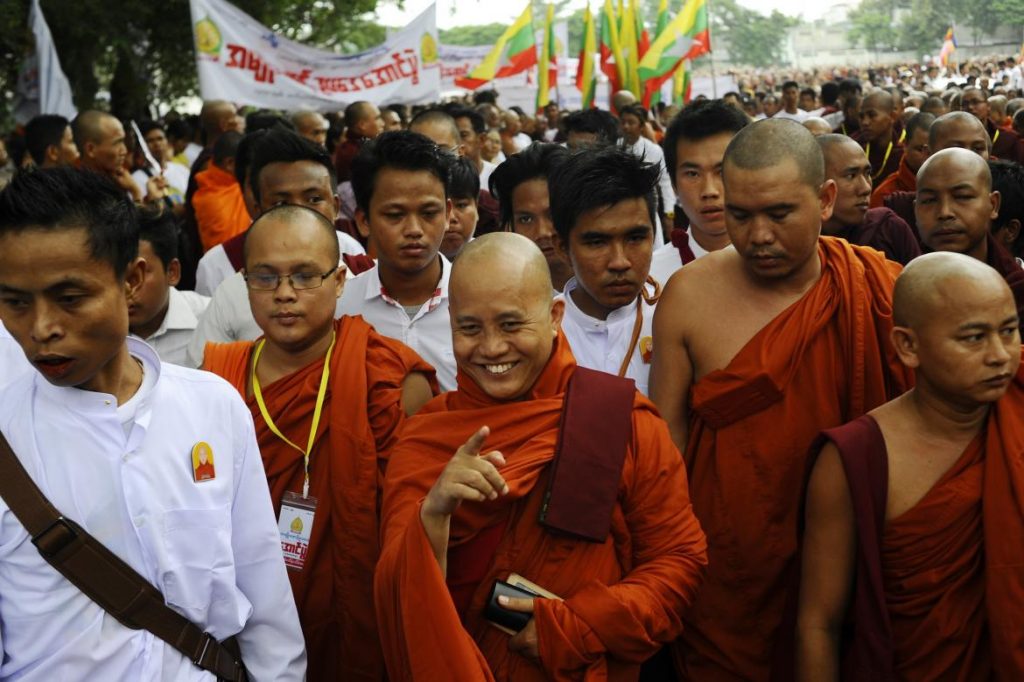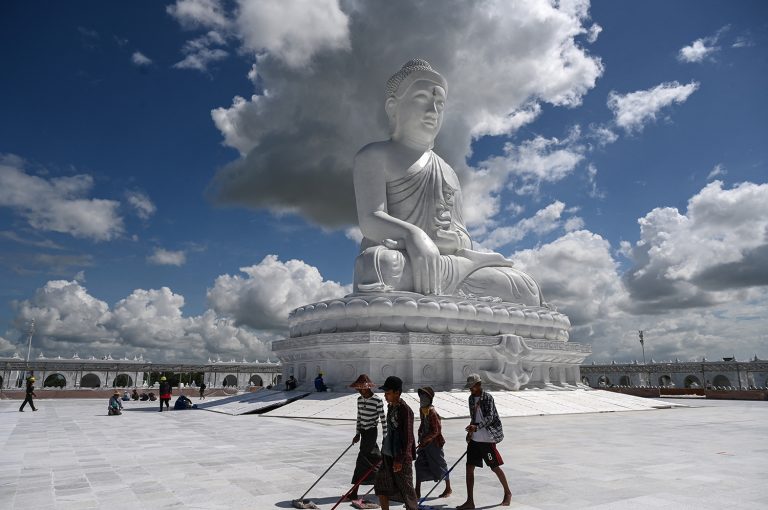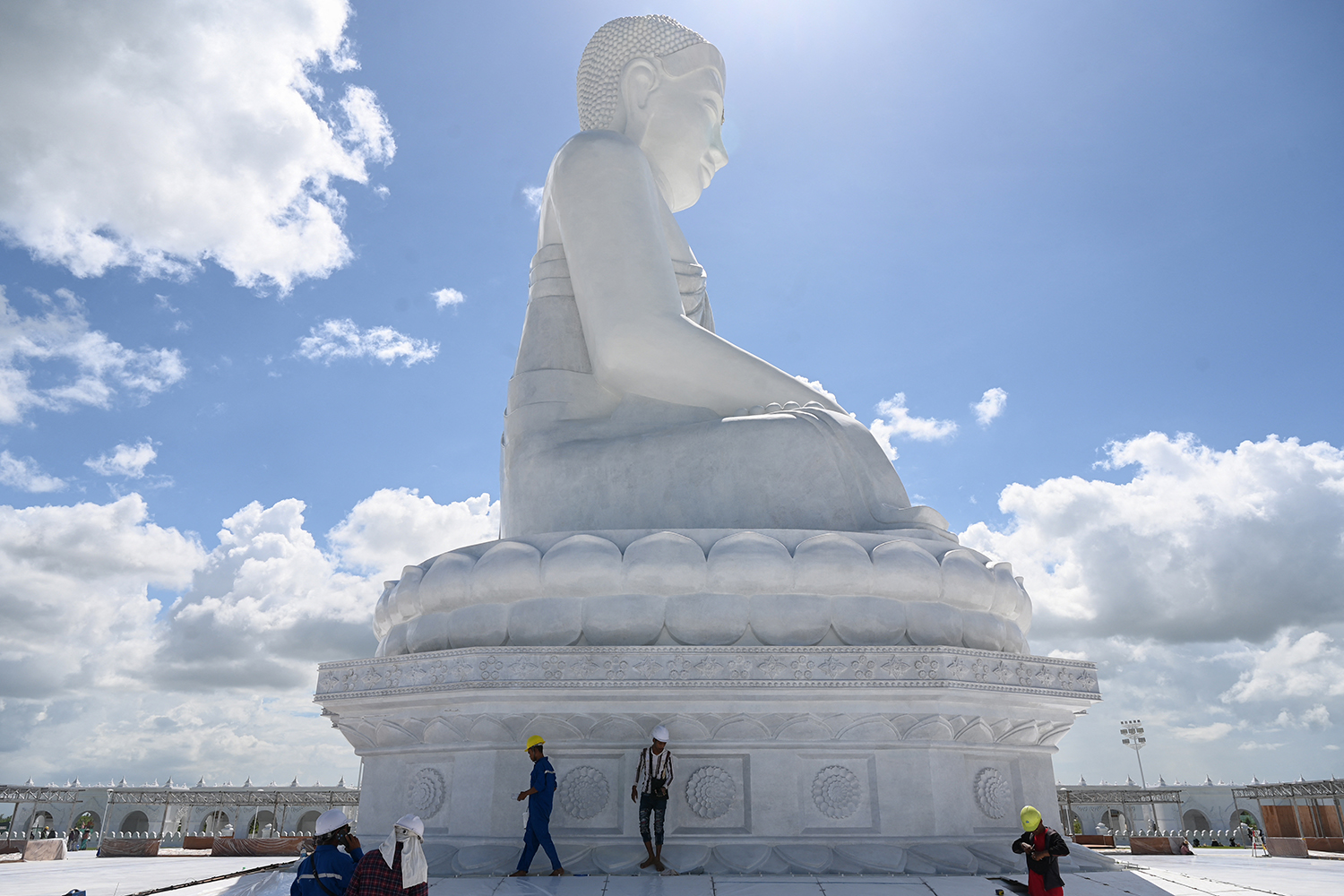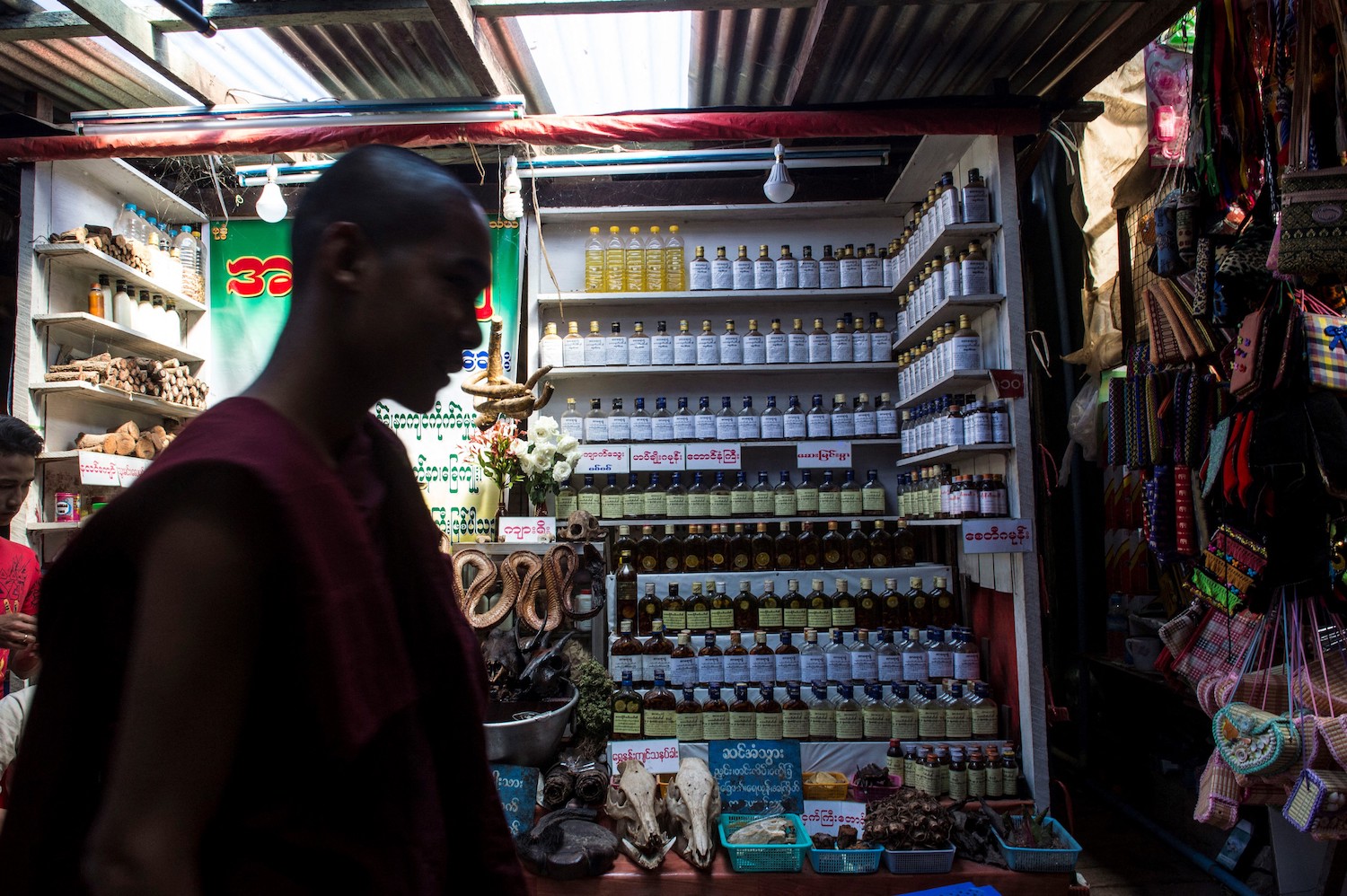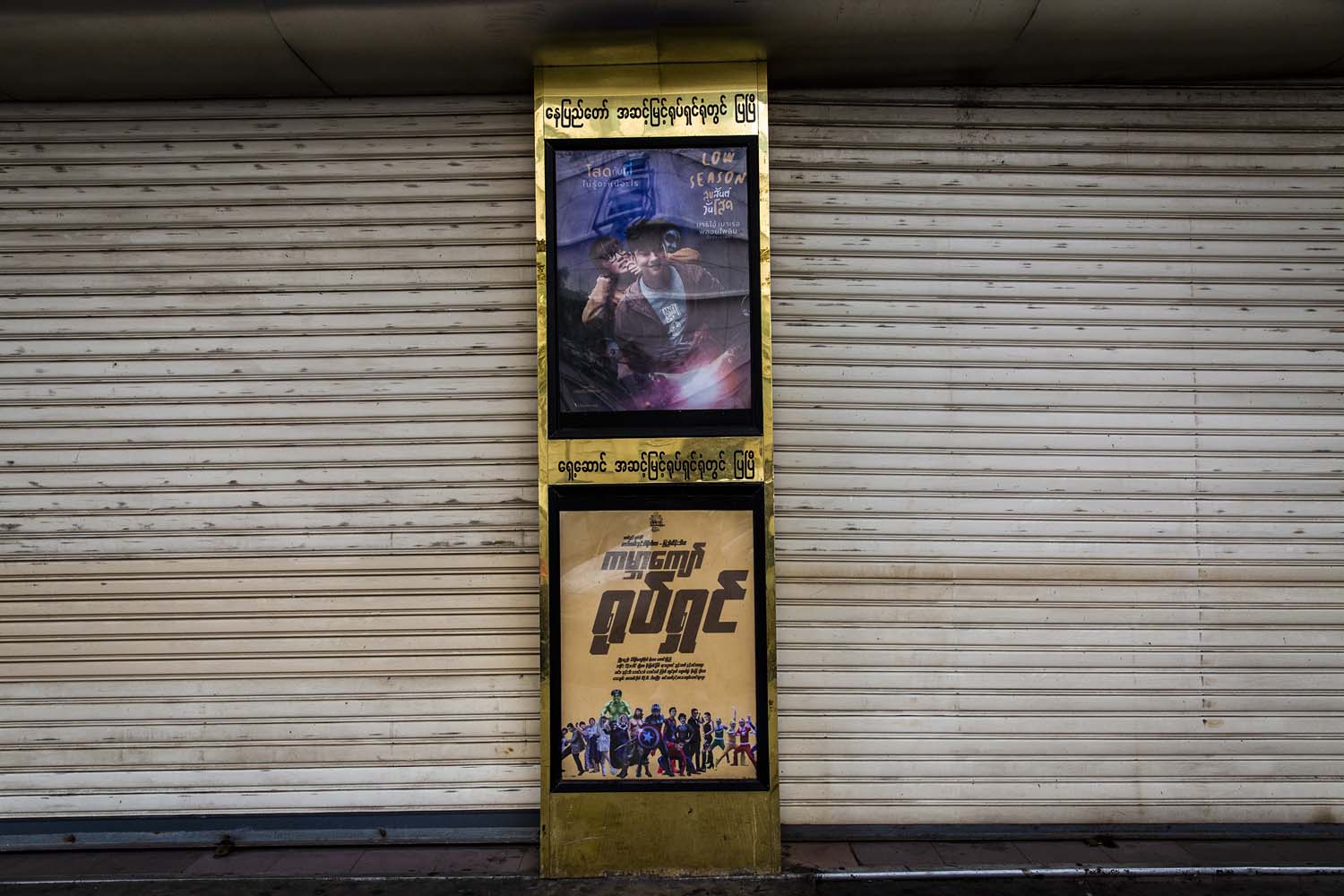By FIACHRA GIBBONS | AFP
CANNES, France — Barbet Schroeder spent months with Ugandan dictator Idi Amin at the height of his power, when corpses would wash up every morning on the shores of Lake Victoria and Kampala was rife with rumours that he was eating his opponents.
But in his decades of documenting evil, the veteran Swiss filmmaker says he has never been as scared by anyone as he was by nationalist hardliner and senior Ma Ba Tha member U Wirathu.
“I am afraid to call him Wirathu because even his name scares me,” the highly acclaimed director told AFP. “I just call him W.”
“The Venerable W”, his chilling portrait of the monk who has been accused of preaching hate and inciting attacks on Myanmar’s Muslim community, has been hailed by critics at the Cannes film festival as a “stirring documentary about ethnic cleansing in action”.
Support more independent journalism like this. Sign up to be a Frontier member.
What dismays Schroeder is that Wirathu is utterly unfazed by the chaos and suffering he has unleashed.
Buddhism is supposed to be the philosophy of peace, enlightenment and understanding, he thought.
It helped centre Schroeder’s own life when he made a pilgrimage to India to follow on the path of the Buddha 50 years ago to “cure myself of my jealousy”.
But the hate speech and fake news that Wirathu spreads from his Mandalay monastery, accusing Muslims — barely four percent of the country’s population — of trying to outbreed the majority Burmese, made Schroeder’s head spin.
‘Devilishly clever’
“He is much more intelligent and in control of himself that I thought, devilishly clever in fact,” said Schroeder.
“It was like being faced by a good Jesuit or some very clever communist leader back in the day,” he said.
Rather than “question him like a journalist”, Schroeder just let the monk talk as he did with the other subjects of his “Trilogy of Evil”, which began with “General Idi Amin Dada” in 1974 and includes his 2007 film “Terror’s Advocate” about the French lawyer Jacques Verges, who defended Nazi war criminal Klaus Barbie and Serbian leader Slobodan Milosevic.
“If you wait long enough, slowly the truth would come out,” Schroeder said. “That is what I did with Idi Amin and Jacques Verges.”
“When he lied I’d say, ‘Tell me more, how interesting … So the Rohingya burn their own houses so they can get money from the United Nations…'”
“For me one of the most shocking moments is when he says they destroy their own houses, and then you see a crowd of maybe 3,000 people fleeing their burning homes. It’s nightmarish.”
In another telling scene Wirathu is shown watching Muslims being beaten to death in Meiktila near Mandalay in 2013, a month after he gave an anti-Muslim speech there.
Hate speech ‘escalating’
Schroeder said the monk had returned “all peace and love” to the town to call for calm, “but he was at least indirectly responsible for what was happening.”
“Wirathu said all this happened because a monk was killed by the Muslims. But I read the pamphlet that sparked the riots and it sounded very much like his speeches and that he could have written it.”
This month, Wirathu stirred tension by touring Muslim areas in troubled Rakhine State, despite Myanmar’s top Buddhist body banning him from preaching in March.
Hundreds of Rohingya Muslims died in 2012 when sectarian violence ripped the state apart, and more than 100,000 still languish in fetid displacement camps.
More than 70,000 have fled into neighbouring Bangladesh since October after the military launched a months-long crackdown that UN investigators say cost the lives of hundreds of the persecuted minority and may amount to crimes against humanity.
Last week a UN envoy criticised the Myanmar government for not clamping down on “hate speech and incitement to discrimination” which she claimed “appear to be drastically escalating”.
In the film Schroeder, 75, seems to trace Wirathu’s Islamophobia to the rape and murder of a Buddhist woman by a Muslim in his hometown of Kyaukse.
But in person he is not so sure. “Another theory is that his mother left his father and married a Muslim, or because his monastery was burned when he was 14. But every time I checked I was never sure.
“Why was Hitler like he was? We will never know how this garbage collected in his mind.”


